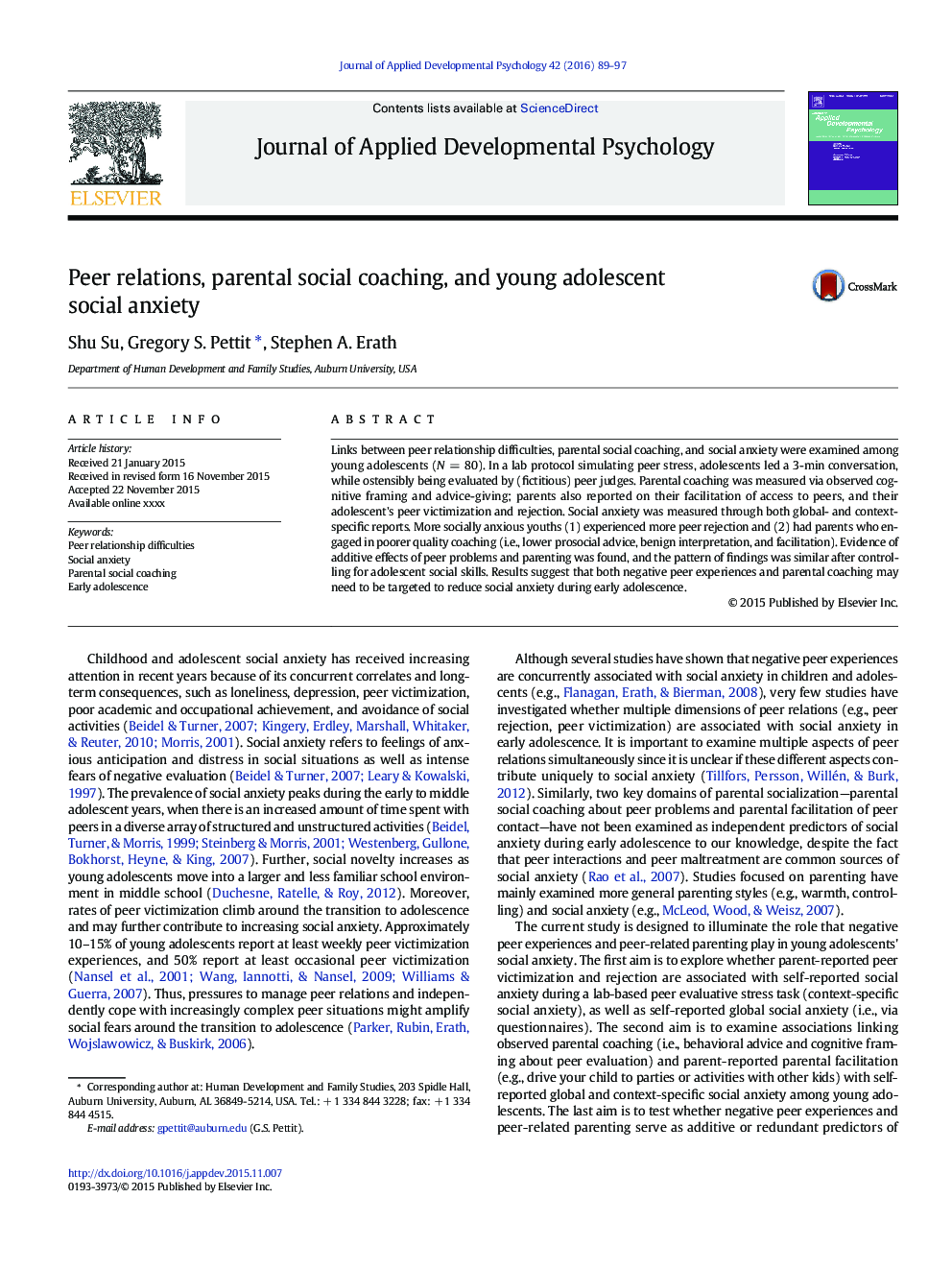| Article ID | Journal | Published Year | Pages | File Type |
|---|---|---|---|---|
| 6842866 | Journal of Applied Developmental Psychology | 2016 | 9 Pages |
Abstract
Links between peer relationship difficulties, parental social coaching, and social anxiety were examined among young adolescents (NÂ =Â 80). In a lab protocol simulating peer stress, adolescents led a 3-min conversation, while ostensibly being evaluated by (fictitious) peer judges. Parental coaching was measured via observed cognitive framing and advice-giving; parents also reported on their facilitation of access to peers, and their adolescent's peer victimization and rejection. Social anxiety was measured through both global- and context-specific reports. More socially anxious youths (1) experienced more peer rejection and (2) had parents who engaged in poorer quality coaching (i.e., lower prosocial advice, benign interpretation, and facilitation). Evidence of additive effects of peer problems and parenting was found, and the pattern of findings was similar after controlling for adolescent social skills. Results suggest that both negative peer experiences and parental coaching may need to be targeted to reduce social anxiety during early adolescence.
Keywords
Related Topics
Social Sciences and Humanities
Psychology
Applied Psychology
Authors
Shu Su, Gregory S. Pettit, Stephen A. Erath,
